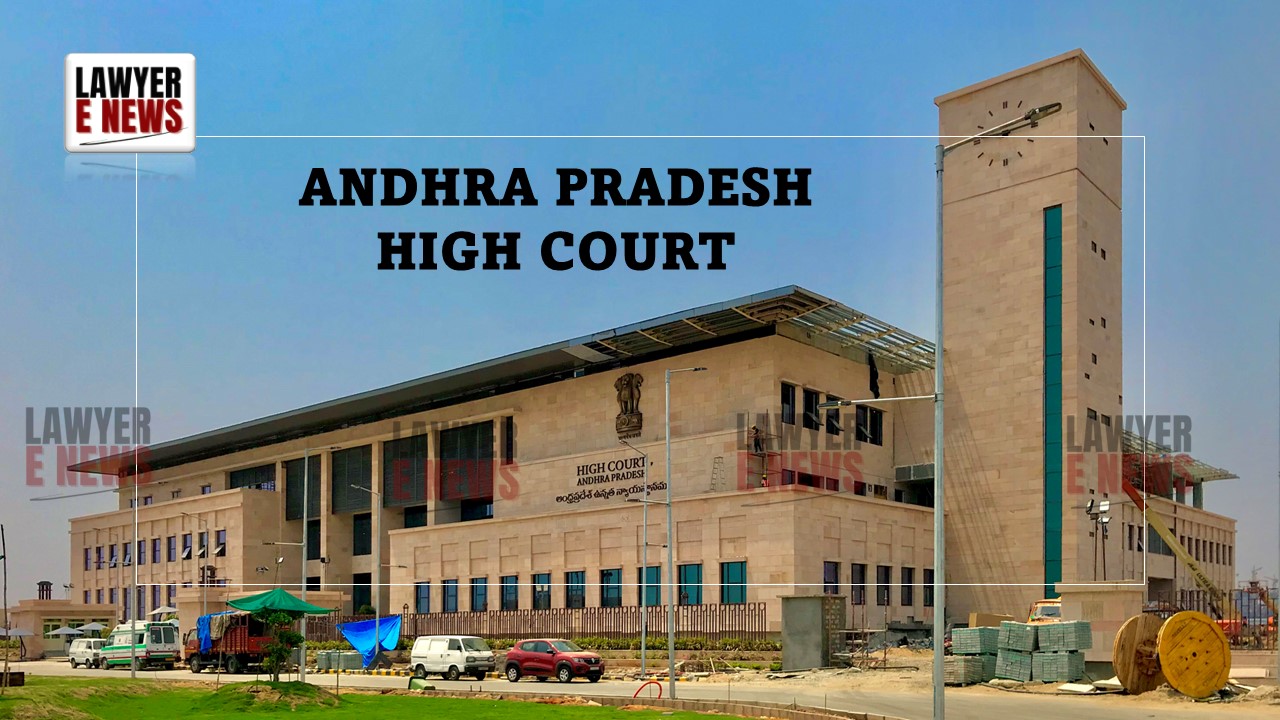-
by sayum
14 February 2026 2:22 PM



In a judgment delivered on September 9, 2024, the Andhra Pradesh High Court reaffirmed the obligations of Sub-Registrars under the Registration Act of 1908, directing the Sub-Registrar of Renigunta, Tirupathi District, to process a sale deed submitted by the petitioner, Smt. Muniammal. The Sub-Registrar had initially refused to accept the sale deed without providing any reason. Justice Gannamaneni Ramakrishna Prasad emphasized that Sub-Registrars are legally bound to either register the document or provide a reasoned refusal.
The petitioner, Smt. Muniammal, had purchased property and submitted a sale deed dated August 5, 2024, to the Sub-Registrar in Renigunta, Tirupathi District, for registration. The Sub-Registrar declined to accept the document without offering any explanation. The petitioner, represented by Advocate Sri Nagendra Babu Paragati, filed a writ petition (No. 18105 of 2024) seeking a directive from the court to compel the Sub-Registrar to accept and process the sale deed. The petitioner also cited a prior judgment from the same court, Salimeni Ravindra v. State of Andhra Pradesh & Ors. (W.P. No. 10392 of 2021), to support her claim.
Justice Gannamaneni noted that the refusal of the Sub-Registrar to accept the sale deed violated Section 71 of the Registration Act, 1908, which mandates that Sub-Registrars either register a document presented or provide written reasons for refusal. The court referenced the Salimeni Ravindra case, which clearly outlined the duties of Sub-Registrars under this provision of law.
"The Registrar or Sub-Registrar is under an obligation to process the document and, if unwilling to register, must issue an order of refusal along with recorded reasons," the court highlighted, reaffirming the procedures outlined in Rules 161 to 164 of the Registration Act.
The court stressed that the law provides a structured process to handle such registrations, and the arbitrary refusal to accept documents undermines legal certainty. "The Sub-Registrar cannot refuse to process a document without due cause," the court observed, while directing that such refusals must be made in accordance with the procedure defined under the Registration Act and properly recorded in official books.
Justice Gannamaneni further directed that the petitioner submit the court’s judgment and the prior judgment from the Salimeni Ravindra case to ensure the Sub-Registrar follows the mandated process in this and future cases.
Quotes from the Judgment: "The procedure laid out in Section 71 of the Registration Act is clear—there is no room for arbitrary refusal. Sub-Registrars must either register the document or provide a reasoned refusal in a Speaking Order," observed Justice Gannamaneni.
The court’s decision reaffirms the responsibilities of Sub-Registrars and reinforces the rights of property owners to have their sale deeds processed in accordance with the law. The ruling mandates compliance from Sub-Registrars and serves as a crucial reminder of the obligations under the Registration Act, which are designed to provide transparency and fairness in property registration. The judgment is expected to streamline property transactions and prevent unwarranted refusals in future cases.
Date of Decision: September 9, 2024
Smt. Muniammal v. State of Andhra Pradesh & Ors.
